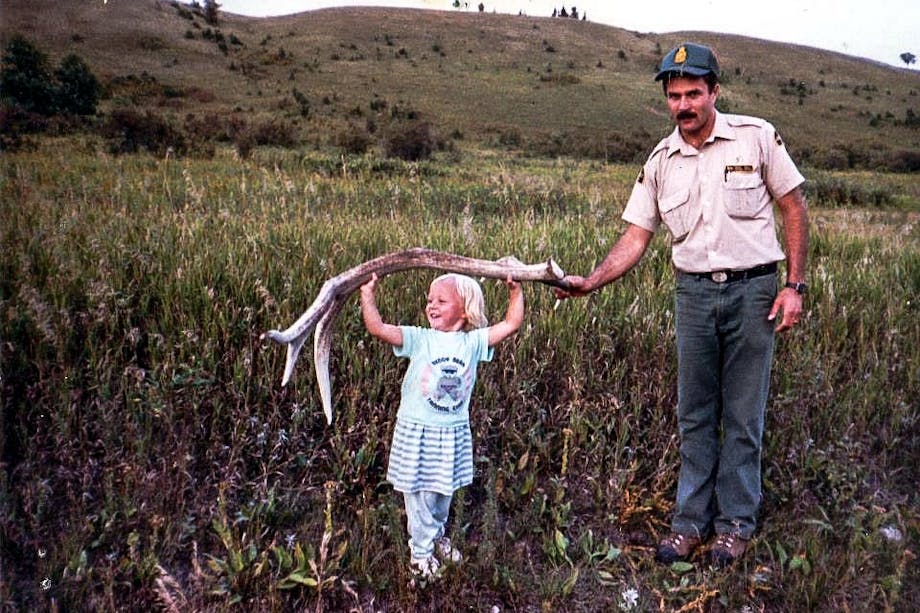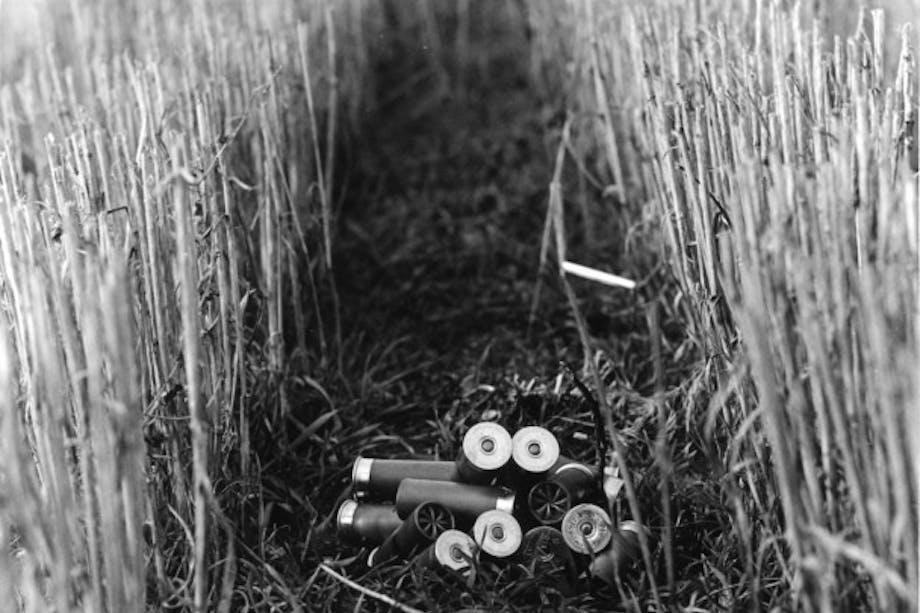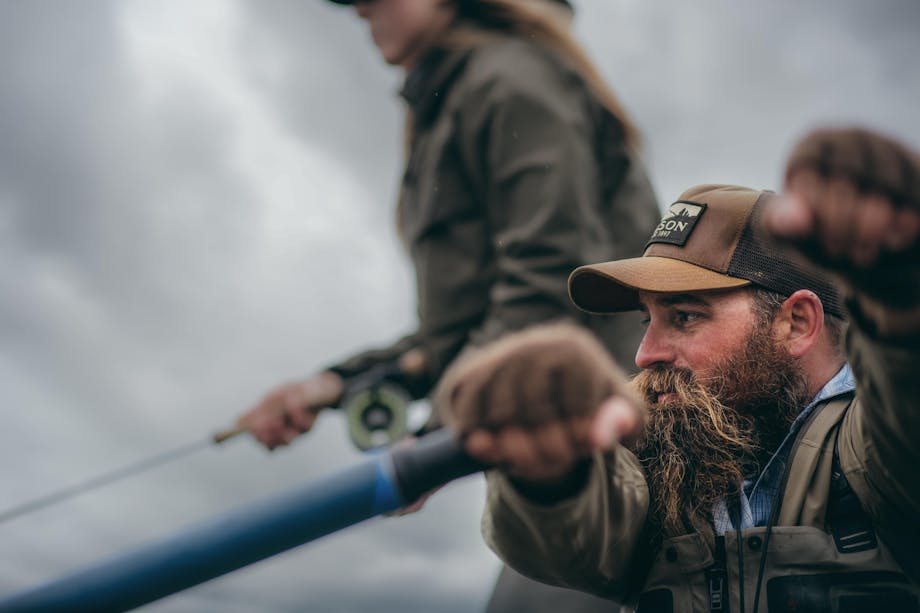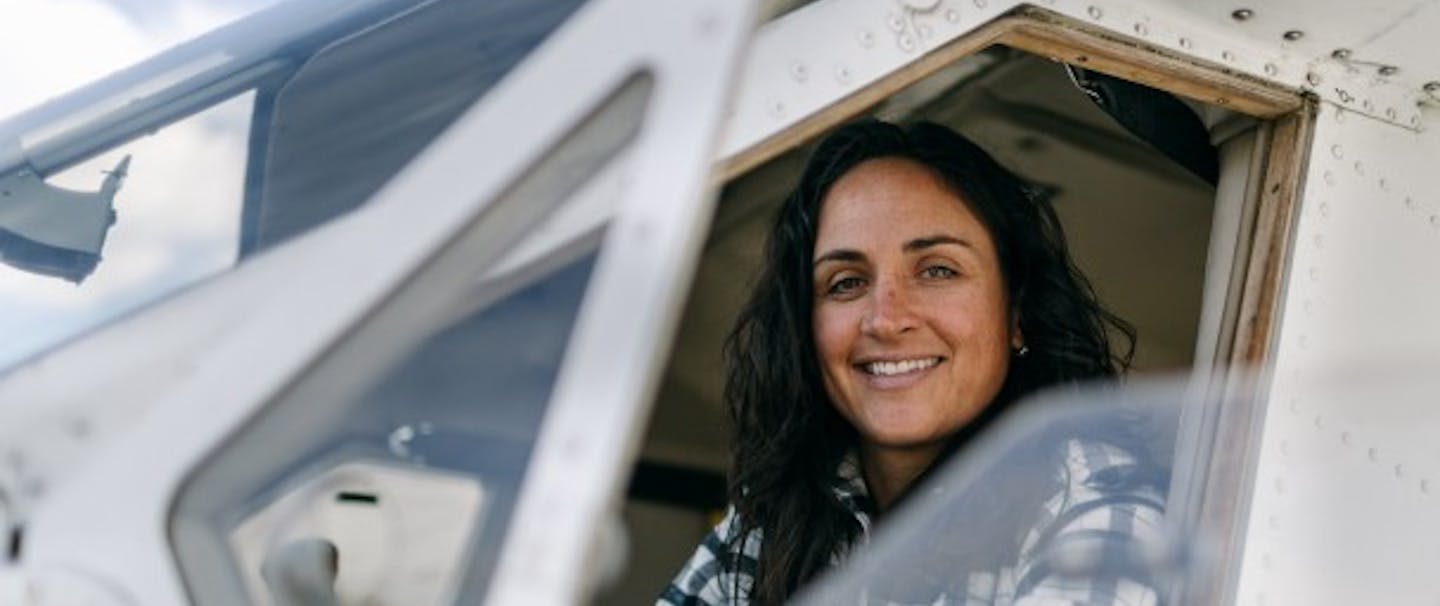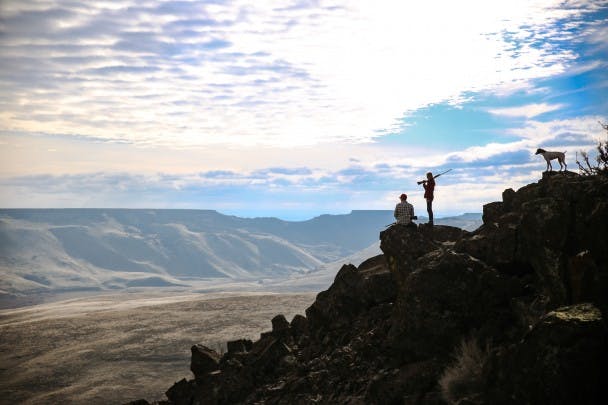
Jillian Lukiwski, also known as The Noisy Plume, is an independent metalsmith, freelance photographer and writer representing the indelible spirit of the interior West of Canada and the USA. She spends her winters in Idaho and in the summer, she moves North to the Methow Valley of Washington with her smokejumper husband. Jillian prefers strong coffee, river travel, real maple syrup, big running bird dogs, cutthroat trout, red lipstick and classic country music.
Robert says the first day of February is the worst day of the year. The more time I spend hunting by his side behind our hardworking dogs in the rimrock country and high desert range of Idaho, the more I tend to agree with him.
This past winter, we rented a small house on the Snake River for two months in order to spend more time out on the land with our dogs and each other. Robert works for the US Forest Service as a smokejumper and his job splits our family in two for a good portion of the year. Winter is a time for us to patch up the cracks that form in the foundation of our relationship after a long fire season but it’s also a time to indulge our dogs in their passions and talents, a time to anchor ourselves to the land and a time to harvest a little meat in an honest way.
We moved out to the river house with a modest amount of life necessities and upon arrival, our days immediately developed a steady rhythm. It was a simple life there, quiet, free of the steady, glowing noise of the internet. We had patchy 3G coverage that allowed us phone conversations with friends and family as long as we stood over the kitchen sink as we talked. There, as we talked on the phone with the distant members of our tribe, we watched through a wide window as a stretch of the Snake River boiled and steamed its way across the landscape, rolling green and white under the pale sun of winter. At the little river house, there were no distractions, just our small family and two neurotic German shorthaired pointers begging to be hunted and hunted hard, every single day.
Most mornings we woke up with the rising sun, built a hearty breakfast, packed lunches, filled our water bottles, loaded the dogs and the guns in the truck and drove out into the crumbling lava flows that build the canyon lands of the Snake River plain. Mornings stretched into afternoons eventually giving way to crumbling sunsets and the dependable drift of stars rising up to croon blue music against the frigid soot of night. With the onset of night, we hiked our exhausted bodies back to the truck and made our way home to the river house. After feeding the dogs we melted the chill from our bones by hovering over the fireplace while whatever we shot that day roasted in the oven or cooked on the stove top. After dinner, we played cribbage or read books until too exhausted to stay awake.
Each night, for nearly two full months, we wrapped our arms around each other, drunk on the softness that comes from mixing fatigue with warmth and closed our eyes to the sound of gale force wind flinging rain against a metal roof while the dogs barked and woofed gently in their sleep, crying out over busted coveys and missed singles. We felt our tired muscles relax with sleep while an owl called from the rickety cottonwood in the driveway. We relinquished ourselves to the profound peace we found at the humble house above the river where we lived our pared down existence with the sublime clarity and integrity that stems from living life as it was intended to be lived: simply.
We had predictable patterns like the birds we hunted; we were habitual in our pursuit, dogged and methodical in our searching. For every day we hunted an area we know by heart, we spent four days exploring new areas, foreign canyons, rugged ridge lines that raced away toward an apathetic winter sky; creeks whistled and bristled with thorny quail habitat, rolling up and away into thick fog and gaping canyons. We crept our truck through insane terrain, eased it over sloppy two track studded with humps of black rock, always in pursuit of chukar but open to the possibility of chasing quail and Hungarian partridge, too.
Time passed. We all grew younger as the weight of the world fell from our shoulders. The dogs hit hunting weight and ran as hard as ever despite jutting hip bones and ribs. The softness at our waistlines dissolved as we hunted ourselves thin, too, and still we found ourselves working as hard as ever, walking the extra miles, approaching every point with haste and alertness, fingers itching for triggers, willing ourselves to be worthy of our dogs, slowly turning as delicate and eternal as the bunchgrass in hard wind.
We spent the final day of upland season walking a fifteen mile loop behind the dogs. An extra five miles was added to our usual approach by an impassable two track burping and squelching with deep gumbo in the warming sun. We piled out of the truck, shouldered our packs, cast off the dogs, crossed a sage flat and climbed up and over one ridge line, legs hammering like sluggish pistons through narrow mazes of muck and stone; squinting at the wind as it pushed and pulled thick fog over rock, making the land a stoic, veiled bride.
We summited a second ridge and followed the length of it to where it terminated in a decaying spur of lichen gobbled rubble. The dogs were working well against a strong, cold wind and while we had encountered coveys of chukar and Hungarian partridge up top, a handful of long shots had failed to result in a bird for our bags. The sun was high in the sky and we were undeterred; time was on our side.
After miles of hiking, we were only just beginning to expect some action and our expectations were fulfilled; we found birds, right where we trusted we would find them. Great heaving coveys of chukar lifting up out of sagebrush, zooming over golden grasses and ducking down beneath the canyon rim we paralleled as we walked. We worked our way around the lip of black stone another full mile before climbing down out of the wind into the pooled heat where the winter sun strikes at basalt and the stone holds and reflects the warmth of the day. I peeled off a layer of clothing before we sent the dogs out in search of singles and tightly holding singles is what we found. Shot by shot our bags grew heavy with birds and our dogs grew more glorious and legendary with every point and fetch; we were Idaho royalty in feather and sagebrush crowns, king and queen of a wild space hardly anyone takes the time to know.
We could have worked that way for hours, days, months, years — pushing chukar down over the canyon edge, locating singles, shooting, calling out “fetch” to the dogs and then looping up and back to push birds off the canyon edge once more. Yes. We could have worked that way forever but for the slow rotation of our lovely world on its tidy axis, but for the tilt and shift of the seasons, but for our hungry bellies and cold hands. The day began to fade, the air cooled, the dogs began to operate more slowly, my legs grew clumsy from climbing stone staircases and my arms were weary from the weight of my gun. It was time to go home, on that wonderful and final day of upland, home to our river house where we could relive the successes and mistakes of the day, reward our dogs with dinner, warmth, rub downs and relaxation. And so we did eventually come around to the truck again, mud hardening beneath our boots as we crossed the expanse of open sagebrush once more. We loaded the dogs, fell into our seats, fired it up and drove back home to the river and the warmth of our humble house.
The next day we packed up the river house and moved home to Pocatello, tired, happy and together. A few days later, Robert left for early season work on the East coast. Another upland season in Idaho had come and gone.
This summer when Rob is away working for long stints, when I feel lonesome for the company of my man, when the unconditional love and comfort of our dogs isn’t quite enough to get me through, I will remember the two months we had together this winter past, exploring the state we love more than anywhere. I will return to the lessons I learned from the land, the birds, my dogs and my husband; I will continue to draw truth from those lessons and apply what I have learned to daily life. I will recall my failures, my successes, those incredible moments when the stars aligned and my dog brought a bird to my waiting hands. I will remember, with a whole heart, those thrilling times when Robert planted an excited kiss on my mouth while exclaiming, “Wonderful shot! I’m proud of you.” I will remember the strong sense of family I felt each day when I walked out with my husband into the width and breadth of the land here, when the scent of the sagebrush wrapped around us like a pale green silken flag and whispered, “Welcome home.”
Upland season always comes around again; winter gives way to spring, Robert leaves for work, we all survive summer and as the days drift into autumn I will wait for the fire season to officially draw to a close. As the days grow shorter, I’ll come around to upland again. I will find myself practicing the habit of packing a bag in the late afternoon, loading a dog and a shotgun in the truck and driving up the mountain in search of grouse. The birds will be a homecoming for the dogs and for I. Eventually, Robert will finish his fire season and he’ll return to me, the dogs, the birds and Idaho and like we always do, we’ll make our way out to the land together, as a family made whole again by the passing of time. There, in the glorious moments of togetherness, we’ll bind ourselves to the simplicity that is found in the gift of winter, the stalwart noses of our dogs and the fleeting view of chukar on the wing.
